Intermarkets' Privacy Policy
Donate to Ace of Spades HQ!
aceofspadeshq at gee mail.com
Buck:
buck.throckmorton at protonmail.com
CBD:
cbd at cutjibnewsletter.com
joe mannix:
mannix2024 at proton.me
MisHum:
petmorons at gee mail.com
J.J. Sefton:
sefton at cutjibnewsletter.com
Washington's Birthday Cafe
Quick Hits
Revealed: The Erotic Poetry of... Eric Swalwell?
The Media Whined That the Washington Post Cancelled Its World-Beating Sports Section.
The Media, You Will Not Be Surprised to Learn, Lied
RFKJr. Reveals Harrowing Evidence About the Extent of California Fraud
Leftists: Replacement Theory is a White Nationalist Conspiracy Theory
Also Leftists: The English Countryside Is Too White So We Have to Move Minorities and Migrants Into It
CNN Pollster: An All-Time High of American Voters, 58%, Say Democrats are "Too Liberal"
Rubio and AOC Offer Competing Visions of Foreign Policy, Realist Vs. Retard
THE MORNING RANT: The SBA Will Stop Lending to Non-Citizens
Jim Sunk New Dawn 2025
Jewells45 2025
Bandersnatch 2024
GnuBreed 2024
Captain Hate 2023
moon_over_vermont 2023
westminsterdogshow 2023
Ann Wilson(Empire1) 2022
Dave In Texas 2022
Jesse in D.C. 2022
OregonMuse 2022
redc1c4 2021
Tami 2021
Chavez the Hugo 2020
Ibguy 2020
Rickl 2019
Joffen 2014
maildrop62 at proton dot me
Saturday Evening Movie Thread 06-06-2020 [TheJamesMadison]
Alexander the Awful
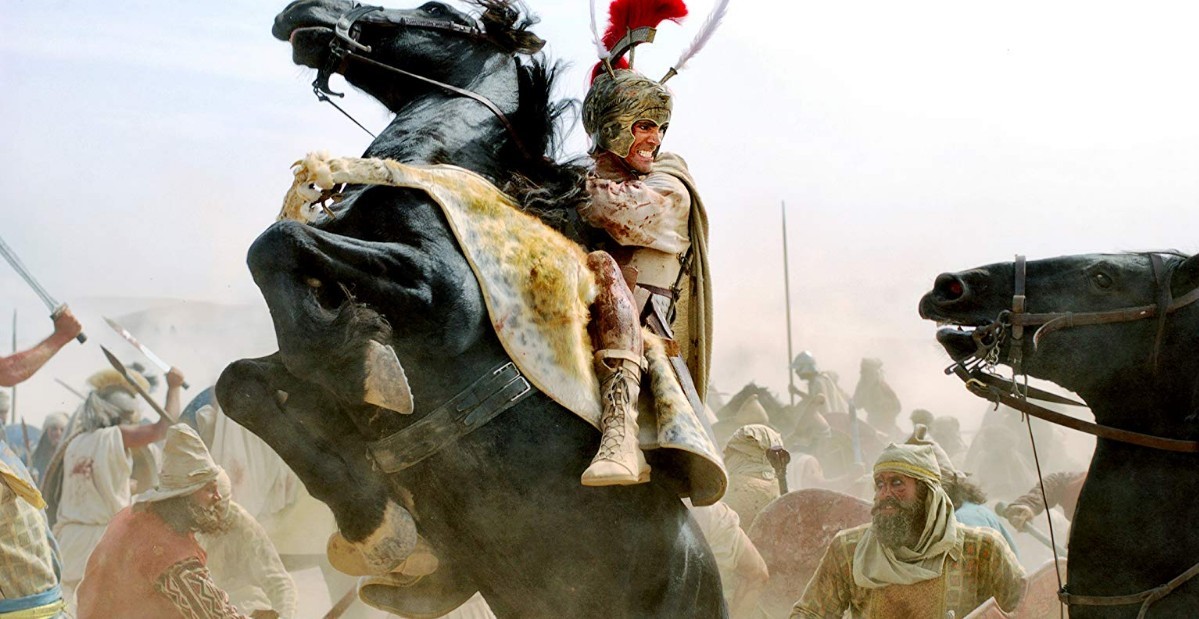
Gladiator made a mark on Hollywood in 2000. Financially successful and well regarded by both critics (except for Roger Ebert) and the Academy, Ridley Scott's sword and sandals epic ignited Hollywood's love of epics for the first time in decades, something even the success of Mel Gibson's Braveheart could not do. The love affair didn't last very long, though, because none of the movies that followed where nearly as successful critically or commercially, and the genre rebirth died out.
Wolfgang Peterson's Troy was fine but nothing special. Scott's own Kingdom of Heaven,in the form of the director's cut, is fantastic though only released in a single theater. Antoine Fuqua's King Arthur was overserious but fine. Peter Weir's Master and Commander: The Far Side of the World was great. They all came and went to various levels of fanfare and box office receipts. The one film that really sticks out to me, though, is Oliver Stone's take on the life of Alexander the Great.
However, Stone's movie is a fever dream of incoherence, and it absolutely fascinates me. Don't get me wrong, I kind of hate this movie, but it's just so wrong in so many ways that I finally took the plunge and watched three of the film's four versions (the theatrical version, the director's cut, and the Final Cut) in a week. I am here to report.
A Brief Background
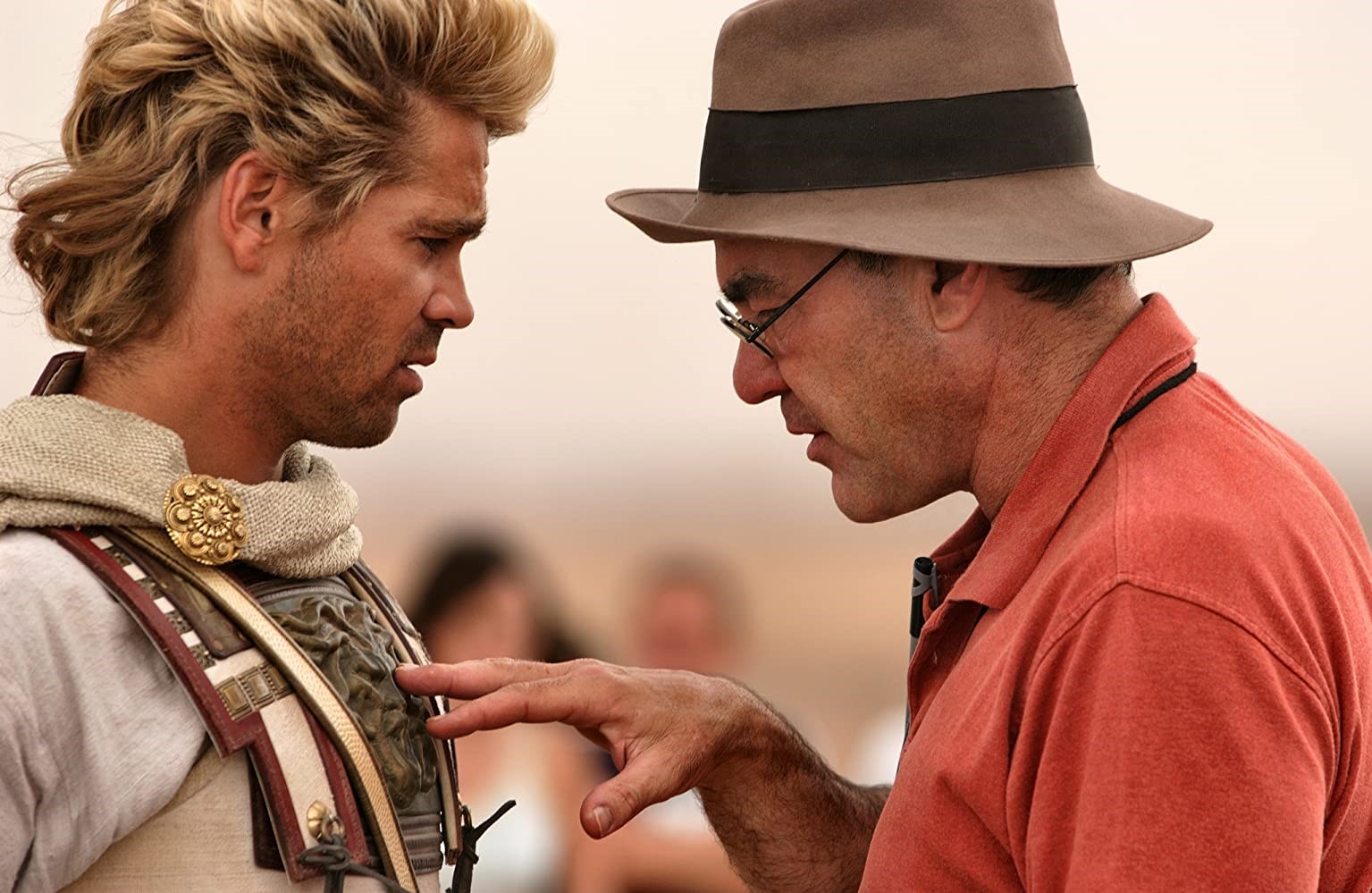
Oliver Stone's film was released in November of 2004 with hopes of capturing some industry awards. This was dashed once anyone saw it and realized that the film was a complete mess. Trying to save his film, he came up with a Director's Cut in 2005 that was released on DVD that ended up being eight minutes shorter than the theatrical cut.
This DVD release was apparently a very large success for Warner Bros., and they gave Stone money to recut the film one more time. Released in 2007, Stone's Alexander Revisited: The Final Cut came out on DVD and Blu-ray. Three hours and thirty-four minutes long, it included over half an hour of footage left on the cutting room floor. He broke his word, though, when he released the Ultimate Cut, a slightly refined version of The Final Cut that Stone has called this his final word on the project, hoping that it captured the complete complexity of the historical figure.
And that, right there, is the source of the problem with the movie.
Dewey the Great
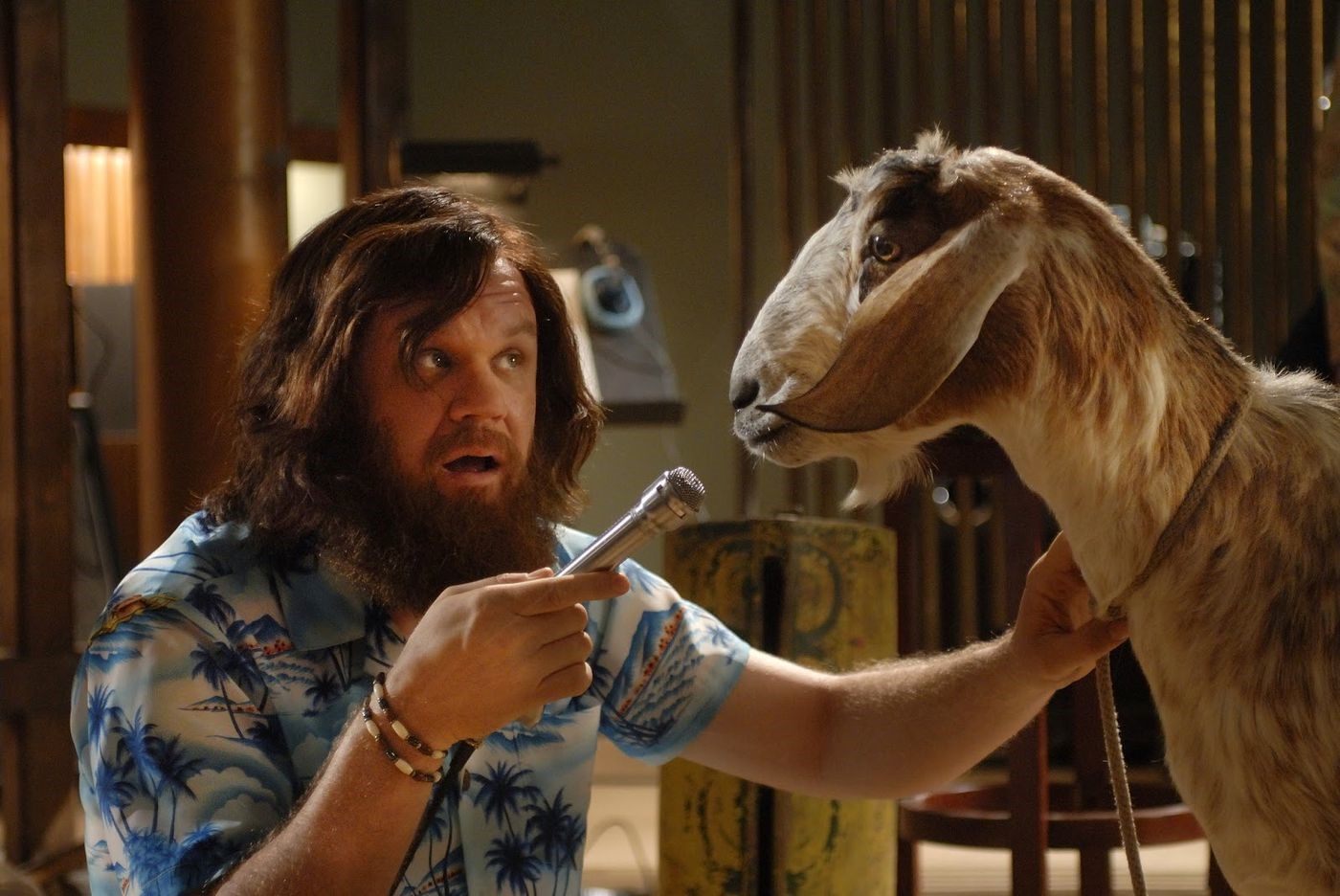
Do you remember a little biopic satire called Walk Hard: The Dewey Cox Story? It was a direct satire of the Joaquin Phoenix led and James Mangold directed biopic of Johnny Cash called Walk the Line. In it, John C. Reilly plays Dewey Cox, a fictional singer who leads the most generic rock and roll rise and fall story you can imagine. (It's also hilarious and you should watch it.)
I bring it up because its satire goes beyond just biopics of singers, but it extends into biopics in general. In particular are two things in Walk Hard that Alexander does as well. The first is that John C. Reilly plays Dewey Cox from the age of fourteen to his 70s, and it's really weird to see Colin Farrell, buff and with a five o'clock shadow already peeking through, playing Alexander at seventeen. The second is that Walk Hard tries to capture the entire life in all its complexities of a fictional complicated man, providing easy answers all along the way. This is pretty much what Alexander does, giving several easy answers that all seem to conflict with each other.
You see, Oliver Stone grew up idolizing Alexander the Great. From the time he was a boy, he imagined being part of the great march through Asia to India at the Macedonian's side. It's obvious that he knows a lot about the historical figure, and he tried to fit everything he knew and everything he had created to fill the historical gaps into a single three-hour (or three and a half hour) film. There's simply too much to the life of the real historical figure, much less when you combine it with the imagination of a man who grew up thinking of what could have been. Stone never sat down to figure out what he wanted to say about Alexander, using the historical figure's life as a vehicle to tease out an individual lesson about the human condition.
Fortune Favors the Bold
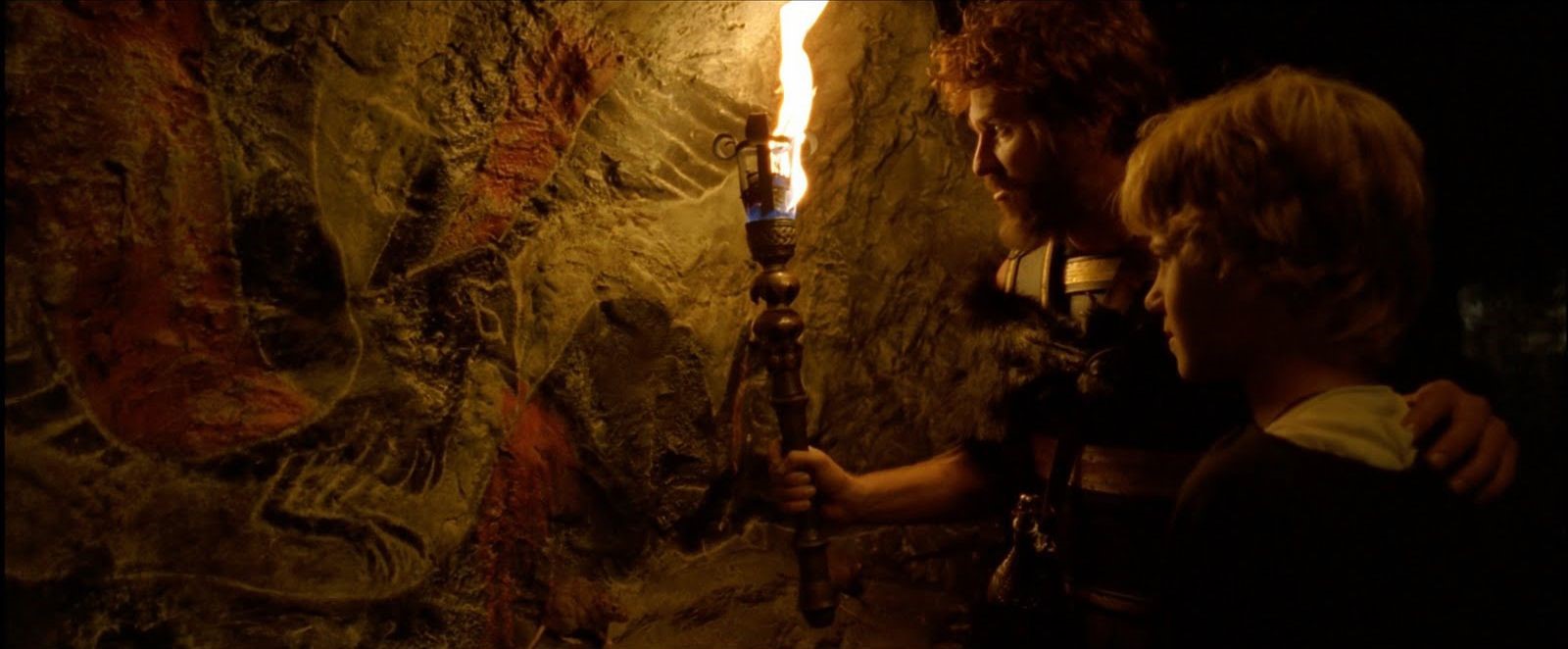
There is a scene early in the film where Philip takes young Alexander into a cave underneath Pella and shows him representations of some of the most important Greek myths. There's Achilles, Jason and Medea, Cronos and Zeus, as well as Oedipus. Literally every single one of these myths ends up playing out in Stone's version of Alexander. The great hero undone by the death of a close male friend and lover, the far-traveling hero who marries a foreign woman and betrays her for another, the father and son at war, and the son in love with his mother all are part of this take on Alexander. Trying to tease through all of these overlapping takes, as well as a couple of others that aren't captured on the cave walls, and figure out a basic point for the story's telling and existence is an exercise in futility.
At no point in Stone's efforts to write, independently finance the one hundred and fifty-five million dollars for the budget, film, and edit did he settle on one thing to say about Alexander. This is a vital lesson for any storytellers out there, especially those that are trying to pull from real life. There's nothing more complex and contradictory as the life of a normal human being than one of a great figure of history. If you want to use such a figure, you must realize that you will not capture the entire truth of the person in a two to three hour piece of art. Don't try to show us the totality of their existence from the moment they could walk to the moment of their death, show us who they were in a specific moment in time. Steven Spielberg's Lincoln is a good example of using a single event to tease out who the subject was as a person.
A Disjointed Whole
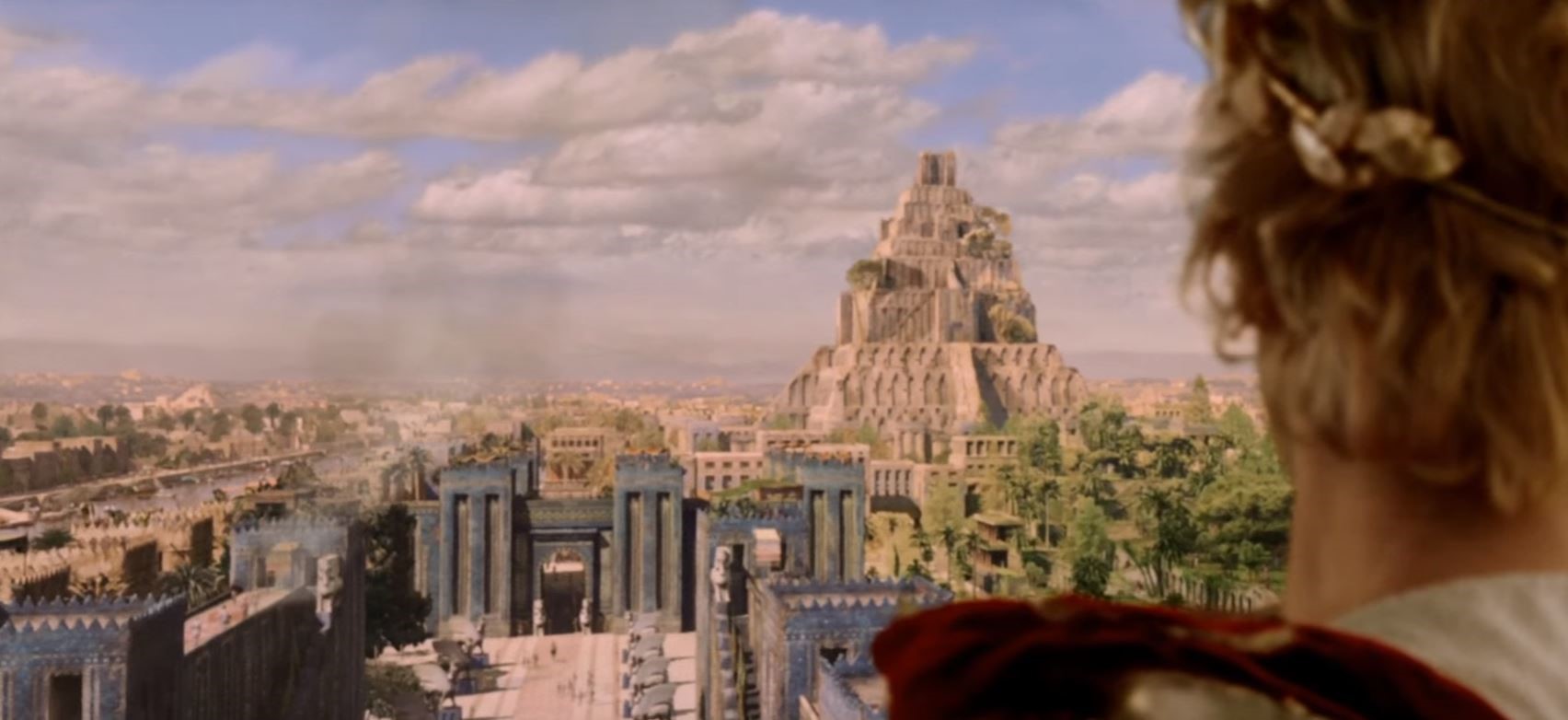
Oliver Stone's Alexander has another problem on top of trying to capture the entirety of Alexander's life. It's that Stone barely tries to bridge the massive gaps between events he portrays. It flabbergasted me every time I started a new edition that literally every step from Alexander leaving Macedonia to the Battle at Gaugamela is skipped over. He goes from a boy just taking the crown of his fallen father and king to a battle-hardened commander with the ability to take apart enemy strategies with unconventional tactics. It makes me question what story of Alexander Stone was trying to tell.
If it was the conquest of Asia, why spend so much time in Macedonia?
If it was his relationship with his parents, why spend so much time in Asia?
It extends back to the central problem that Stone wanted to tell the entire story of Alexander, and in order to cover that much ground he has to ironically skip a lot. That's the purpose of Ptolemy's voiceover. In every cut of the film, he provides filler for a lot of narrative holes brought up because there are huge gaps in the story like the skip from Alexander leaving Macedon to the Battle of Gaugamela. That's a huge campaign that includes the conquering of Egypt, and it's passed over with a single line of voiceover. There's also the plot against Alexander's life by Philotas.
There is not a single general in Alexander's retinue who comes across as a full character in this three and a half hour film, so when, more than two hours into the movie, Philotas gets accused of trying to assassinate Alexander, pretty much everything about it, from an explanation that Philotas was a friend to Alexander since childhood to the implications of his execution for the army as a whole, gets laid out in voiceover. We mostly know Philotas as the guy who yelled at Alexander's wedding because of a grudge from the Battle of Gaugamela, so the voiceover is required just to catch us up. It ends up feeling like having a Wikipedia entry read to us instead of being a scene of drama.
Are Any of the Cuts Good?
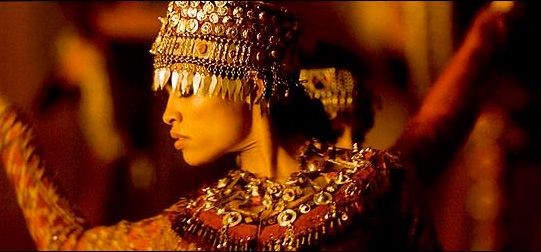
In a word: No. None of them are good, however The Final Cut is the least bad of them. The changes in structure, that mostly make the film a constant jump between Alexander before he leaves for his war with Persia and the other timeline that starts at the Battle of Gaugamela, are a mixed bag, but they do produce some interesting results. It also fixes one particular sequence as much as editing could fix the sequence, which is the marriage of Alexander to Roxana.
Through all three cuts that I watched, though, there are several individual elements that stand out as either good or even great. First is Val Kilmer as Philip. Out of the three principles, it is Kilmer who seems to know what kind of movie he's in: a historical epic. He plays Philip as a wounded, broken man and king who's doing his best. Farrell as Alexander, in comparison, never feels like he's in anything other than a soap opera while Angelina Jolie as Olympias feels like she's playing a sexy Russian vampire. The two battle sequences are also great. Gaugamela uses a bird's eye view and a pre-battle discussion on tactics to provide a larger view that keeps the overall conflict in focus while delving in deeply to the hand to hand combat keeping things exciting. The Indian battle does not have the advantage of the overhead view (a conscious decision, I believe, since we see the eagle depart at one point earlier in the film), but it's filmed just as well with a great use of unusual film stock to help visualize Alexander's near death experience. Roxana's dance is also one of the most visually thrilling single scenes in the film.
That totals maybe 45 minutes of the film, in all of the cuts, while everything else around them is simply wrong.
Oliver Stone was wrong for the movie, not just because he couldn't contain his excitement about making a movie about Alexander the Great enough to drill down to a specific story to tell, but he's visually wrong for the material as well. This is an epic of large characters in large settings, and outside of the battle sequences, the movie is about 75% done in closeup. He doesn't seem to understand some basic filmmaking techniques about framing subjects in order to capture correct emotional resonances. In general, you use a close up in order to heighten a large emotional moment, to bring the audience closer to the subject in frame experiencing some great emotional feeling. When literally every conversation, no matter how mundane, is filmed entirely in closeups, it kills the emotional clarity of the series of images that is the film. As with all rules in art, you can break them and still work, but Stone doesn't seem to understand why he's filming in closeup. It's just his default.
So...Why?

So, I set out to watch three cuts of a bad movie, and most of you are wondering why. Well, it's a good question.
There's something missing in big movies these days, and it's ambition. Even bigger movies tend to operate on smaller cinematic scales that limit their reach, and it's because of the failure of movies like Alexander that producers are less and less likely to sink nine figures into some big, bold production. They fail a lot. Not just artistically or critically but, most importantly for producers, commercially.
And I bemoan the loss of that sort of crazy gamble. People like Oliver Stone, Darren Aronofsky, and John Boorman are crazy people with crazy ideas who attack stories in crazy ways. That can sometimes work, and oftentimes doesn't. [u]Alexander[/u] is an example of when that doesn't work, and yet, there was such effort and hope placed in Stone's broken vision that I find it all kind of hypnotic.
So, despite Alexander's failings artistically, cinematically, and commercially, it is something that I want more of. I want more interesting failures.
Movies of Today
Opening in Theaters:
Nothin'. There's a virus, dontcha know.
Next in my Netflix Queue:
Take Shelter
Movies I Saw This Fortnight:
Live Free or Die Hard (Rating 3.5/4) Full Review "Unpopular movie opinion: Live Free or Die Hard is the best Die Hard movie." [Personal Collection]
A Good Day to Die Hard (Rating 1/4) Full Review "I didn't hate this movie. I mostly found it boring and unengaging. It was simply too inept to get all worked up about." [Personal Collection]
The Man Who Knew Too Much (Rating 3.5/4) Full Review "Barring a couple of small flaws, this is Hitchcock's best movie up to this point in his career. It's exciting and fun, filled with wonderful little human moments (my favorite being a police officer sneaking a sweet from a shop at the start of the shootout), and really well built. This Hitchcock character may have a future in the movies." [HBO Max]
The Mask of Zorro (Rating 3.5/4) Full Review "It's modern Hollywood evoking the best of classic populist Hollywood using modern techniques (well, for the late 90s). Ultimately, it just wants to entertain, and it does that extremely well." [Personal Collection]
The Skin Game (Rating 3/4) Full Review "Hitchcock has a very good cast, uses his camera and the tools of editing to create a film that feels like more than just a filmed play. It also continues a series of films he had made about young men and women paying for the sins of their past, a theme that is surprisingly strong especially considering the nature of Hitchcock's contract work." [Daily Motion]
The Killer Inside Me (Rating 2/4) Full Review "It ends up feeling like a short film stretched to feature length rather than a story that needs one hundred minutes to tell." [Netflix DVD]
Mary (Rating N/A) Full Review "I would imagine my complaints of the story's structure and dialogue would still hold water, but I can't say for sure. I imagine that with subtitles I would have probably scored this the same as [Murder!]." [Daily Motion]
Rich and Strange (or East of Shanghai) (Rating 2.5/4) Full Review "Overall, it's a fine little film that undermines itself from time to time with forced comedy and bookends that don't feel quite right. There's something there, but Hitchcock's not quite where he needs to be just yet." [Daily Motion]
Contact
Email any suggestions or questions to thejamesmadison.aos at symbol gmail dot com.
Follow me on Twitter.
I've also archived all the old posts here, by request. I'll add new posts a week after they originally post at the HQ.
four seasons: " Does anyone give a *hit about the Washington Gen ..."
Hour of the Wolf: "I like the top "joke", but I don't believe it. Whe ..."
Hadrian the Seventh : " *heats up fish in ONT microwave* Good evening ..."
GWB: "I almost spewed my drink when I read the "joke." N ..."
Alteria Pilgram - My President has convictions.: "Open topic: The Washington Generals are greater th ..."
Count de Monet: "When the commentators are ready, the ONT will appe ..."
clarence: "Called the otters. ..."
Count de Monet: "and . . . they're off! ..."
Matthew Kant Cipher: "Happy Monday, MisHum! ..."
Sock Monkey * sporting my Andrew Breitbart attitude : "Mishum in the house! ..."
clarence: "Looks like someone forgot to hit post. "Push th ..."
Washington's Birthday Cafe
Quick Hits
Revealed: The Erotic Poetry of... Eric Swalwell?
The Media Whined That the Washington Post Cancelled Its World-Beating Sports Section.
The Media, You Will Not Be Surprised to Learn, Lied
RFKJr. Reveals Harrowing Evidence About the Extent of California Fraud
Leftists: Replacement Theory is a White Nationalist Conspiracy Theory
Also Leftists: The English Countryside Is Too White So We Have to Move Minorities and Migrants Into It
CNN Pollster: An All-Time High of American Voters, 58%, Say Democrats are "Too Liberal"
Rubio and AOC Offer Competing Visions of Foreign Policy, Realist Vs. Retard
THE MORNING RANT: The SBA Will Stop Lending to Non-Citizens
Paul Anka Haiku Contest Announcement
Integrity SAT's: Entrance Exam for Paul Anka's Band
AllahPundit's Paul Anka 45's Collection
AnkaPundit: Paul Anka Takes Over the Site for a Weekend (Continues through to Monday's postings)
George Bush Slices Don Rumsfeld Like an F*ckin' Hammer
Democratic Forays into Erotica
New Shows On Gore's DNC/MTV Network
Nicknames for Potatoes, By People Who Really Hate Potatoes
Star Wars Euphemisms for Self-Abuse
Signs You're at an Iraqi "Wedding Party"
Signs Your Clown Has Gone Bad
Signs That You, Geroge Michael, Should Probably Just Give It Up
Signs of Hip-Hop Influence on John Kerry
NYT Headlines Spinning Bush's Jobs Boom
Things People Are More Likely to Say Than "Did You Hear What Al Franken Said Yesterday?"
Signs that Paul Krugman Has Lost His Frickin' Mind
All-Time Best NBA Players, According to Senator Robert Byrd
Other Bad Things About the Jews, According to the Koran
Signs That David Letterman Just Doesn't Care Anymore
Examples of Bob Kerrey's Insufferable Racial Jackassery
Signs Andy Rooney Is Going Senile
Other Judgments Dick Clarke Made About Condi Rice Based on Her Appearance
Collective Names for Groups of People
John Kerry's Other Vietnam Super-Pets
Cool Things About the XM8 Assault Rifle
Media-Approved Facts About the Democrat Spy
Changes to Make Christianity More "Inclusive"
Secret John Kerry Senatorial Accomplishments
John Edwards Campaign Excuses
John Kerry Pick-Up Lines
Changes Liberal Senator George Michell Will Make at Disney
Torments in Dog-Hell
The Ace of Spades HQ Sex-for-Money Skankathon
A D&D Guide to the Democratic Candidates
Margaret Cho: Just Not Funny
More Margaret Cho Abuse
Margaret Cho: Still Not Funny
Iraqi Prisoner Claims He Was Raped... By Woman
Wonkette Announces "Morning Zoo" Format
John Kerry's "Plan" Causes Surrender of Moqtada al-Sadr's Militia
World Muslim Leaders Apologize for Nick Berg's Beheading
Michael Moore Goes on Lunchtime Manhattan Death-Spree
Milestone: Oliver Willis Posts 400th "Fake News Article" Referencing Britney Spears
Liberal Economists Rue a "New Decade of Greed"
Artificial Insouciance: Maureen Dowd's Word Processor Revolts Against Her Numbing Imbecility
Intelligence Officials Eye Blogs for Tips
They Done Found Us Out, Cletus: Intrepid Internet Detective Figures Out Our Master Plan
Shock: Josh Marshall Almost Mentions Sarin Discovery in Iraq
Leather-Clad Biker Freaks Terrorize Australian Town
When Clinton Was President, Torture Was Cool
What Wonkette Means When She Explains What Tina Brown Means
Wonkette's Stand-Up Act
Wankette HQ Gay-Rumors Du Jour
Here's What's Bugging Me: Goose and Slider
My Own Micah Wright Style Confession of Dishonesty
Outraged "Conservatives" React to the FMA
An On-Line Impression of Dennis Miller Having Sex with a Kodiak Bear
The Story the Rightwing Media Refuses to Report!
Our Lunch with David "Glengarry Glen Ross" Mamet
The House of Love: Paul Krugman
A Michael Moore Mystery (TM)
The Dowd-O-Matic!
Liberal Consistency and Other Myths
Kepler's Laws of Liberal Media Bias
John Kerry-- The Splunge! Candidate
"Divisive" Politics & "Attacks on Patriotism" (very long)
The Donkey ("The Raven" parody)

